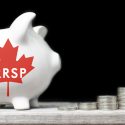THE Pros An Cons Of Paying Cash For Your Home
A trend has just emerged in the market with an increase in numbers of all-cash deals made on home sales. This is a shocker as Americans find it hard to gather a 10% down payment. According to data supplier RealtyTrac, 38.1% of residential property sales in the U.S. in November 2015 were all-cash arrangements, up from 30.9 percent a year ago to its peak since March 2013.
RealtyTrac suspects that this increase is due to new documentation and disclosure rules for mortgages that were implemented in October 2015 and the global instability that attracts foreign cash buyers to the safe U.S real estate. Here are some pros and cons for paying cash for a property either as an investment or as a residence:
WHY CASH PURCHASES MAKE SENSE
#1. Your Are A More Attractive Buyer
A seller is most likely to take you seriously and close the deal faster if you’re not planning on applying for a mortgage especially in a quite competitive market Applying for a mortgage can be time-consuming and the probability that you would be turned down is very high.
#2. You Could Get A Better Deal
Cash grants you more bargaining power over the seller. The seller is willing to receive his money at once so that he can invest it or use it for any other purpose.
#3. You Do Not Have To Go Through The Hassle Of Getting A Mortgage
Since the downturn in the real estate market and ensuing economic recession of ’07-’08, mortgage underwriters have tightened their standards and requirements for deciding the applicant that obtains the loan. Thus, more documentation and details would be requested from buyers with stable incomes and perfect credit records. This can be energy and time consuming for the applicants even though it is quite circumspect on the part of the mortgage industry.
Mortgages are such financial burdens especially when you have to pay each month or if you’re experiencing financial challenges, for instance or if the mortgage has to be refinanced, if perhaps, interest rates fall which can extend the loan obligations. Nowadays, the typical homeowner is unlikely to live in a home a pay off a 10, 15 or 30-year mortgage.
WHAT YOU LOSE
#1. You Will Be Tying Up Alot Of Money In One Asset
If the cash needed to purchase your home constitutes most of your savings, you’ll be breaking a rule of finance known as diversification. Residential real estate doesn’t exactly yield much returns compared to stocks. Thus, financial planners advise that a home should be thought of as a place to live rather than an investment.
#2. You Will Loose The financial Leverage A Mortgage Provides
Your potential return is increased when you purchase an asset with borrowed money that is if the asset appreciates in value. For instance, if you purchased a $300,000 home (in cash) that has appreciated in value by $100,000, your return would be 33% ($100,000 profit on your $300,000). However, if you had a down payment of 20% and borrowed the remaining 80%, your return would be 166% (a $100,000 gain on your $60,000 down payment).
This ignores mortgage payments, tax deductions and other factors. On the other hand, if your home depreciates in value, you tend to lose more if you have a mortgage than if you paid cash. However, this may not matter if you plan on staying in the home but if you’re going to move, you could owe the lender more money than what you obtain from the sale.
#3. You Will Sacrifice Liquidity
Liquidity refers to an asset’s quality of being able to be sold without affecting its value; the degree to which it can be easily converted to cash. In layman’s terms, it is how quickly you can get your money out of an investment if the need presents itself. Most types of bank accounts are liquid, thus you can obtain your cash instantly.
The same cannot be said for brokerage accounts and mutual funds as they take a little time. A home takes months to sell and sure, you can borrow against the equity in your property via a home-equity loan, home-equity line of credit or reverse mortgage. However, these options have disadvantages including fees and borrowing limits, so they can’t be treated casually.
Paying cash for a home is a smart move for some people in some real-estate markets but consider the drawbacks as you intend to do so.





